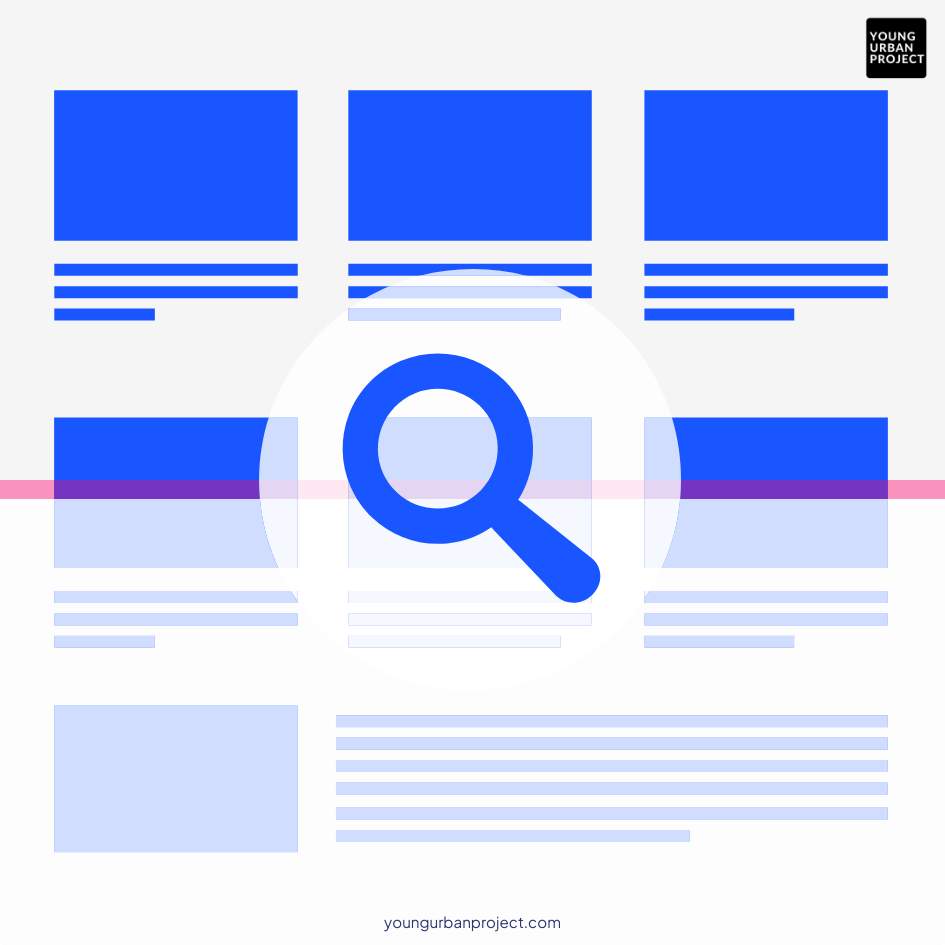In search engine optimization (SEO), one of the most critical processes that can determine your website’s visibility is indexing. Without it, your site’s pages won’t appear on search engine results pages (SERPs), no matter how well-optimized or valuable your content is. So, what is indexing in SEO, and why is it so important for your website’s success?
In this blog, we’ll explore what indexing means, how search engines use it, and how you can ensure your content gets indexed effectively. By the end, you’ll have a clearer understanding of how to optimize your site for indexing, improving your visibility and organic traffic.
Table of Contents
What is Indexing?
Indexing in SEO is the process through which search engines like Google organize and store data from web pages after they have been crawled. Imagine a massive library where every book (or web page) needs to be cataloged correctly for readers (users) to find what they’re looking for quickly. This cataloging system is the search engine’s index.
When a search engine’s bots—commonly known as crawlers or spiders—scan the web, they collect information about pages and store it in a database called the index. This database is extensive and often contains billions of pages. When users enter search queries, the search engine references this index to find the most relevant pages to display in the search results.

The Importance of Indexing in SEO
Understanding the significance of indexing in SEO is vital for anyone looking to improve their website’s performance. Here’s why indexing is essential:
- Visibility in Search Results: If a page is not indexed, it won’t appear in search engine results pages (SERPs). This means that potential visitors won’t be able to find your content, regardless of how great it is.
- Ranking Opportunities: Only indexed pages can compete for rankings on search engines. Proper indexing increases the chances of your pages ranking for relevant keywords.
- User Experience: Indexed pages contribute to an efficient user experience. When search engines can quickly retrieve relevant content, users are more likely to find what they need without unnecessary frustration.
- Content Discoverability: Indexing helps ensure that new content is recognized and displayed in search results promptly, keeping your site relevant and up-to-date.
- Resource Allocation: Proper indexing allows search engines to allocate resources effectively, ensuring that high-quality content is prioritized over low-value pages.
Does Every Page of the Website Need to Be Indexed?
Not all pages on a website should be indexed. In fact, certain pages may be better left out of the index to maintain the overall quality and focus of your site.
Here are some key considerations:
1. Duplicate Content
Duplicate content has the tendency to confuse search engines. For example, if multiple pages contain similar content, search engines may struggle to determine which page to prioritize. This can dilute the authority of your site. Utilizing canonical tags can help direct search engines to the primary version of content that should be indexed.
2. Low-Quality Pages
Pages that provide little value—such as those filled with filler content, advertisements, or irrelevant information—can hurt your site’s overall authority. It’s wise to focus indexing efforts on high-quality pages that offer genuine value to your audience.
3. Privacy and Security Concerns
Certain pages, such as those containing sensitive user data or login information, should be excluded from indexing to protect user privacy. Ensuring that these pages remain unindexed helps maintain security and compliance.
4. Under- Construction Pages
If a page is still being developed or is not ready for public viewing, it should be excluded from indexing. This prevents search engines from presenting incomplete or inaccurate information to users.
5. Seasonal or Temporary Content
Pages with seasonal or temporary content may not require indexing year-round. For example, a holiday sale page might only be relevant for a short time and can be set to Noindex outside of that period.
Factors Affecting Indexing

Several critical factors influence how effectively search engines can index your pages. Understanding these factors is vital for optimizing your site for better indexing:
1. Crawl Budget
Every website has a crawl budget, which dictates how many pages a search engine will crawl within a specific timeframe. Factors that influence crawl budget include the size of your site, the frequency of updates, and the site’s overall authority. To optimize your crawl budget, focus on creating a clean site structure, eliminating unnecessary pages, and ensuring that high-priority content is easily accessible.
2. Sitemap Submission
An XML sitemap is a file that lists all the important pages on your website, making it easier for search engines to discover and index them. Submitting your sitemap to search engines like Google can significantly improve your site’s indexing speed. Ensure that your sitemap is up-to-date and accurately reflects your website’s structure.
3. Robots.txt File
The robots.txt file instructs search engines on which pages they can crawl and which ones they should ignore. This file can be a powerful tool for controlling indexing, but it must be used wisely. Accidentally blocking important pages from crawling can lead to missed indexing opportunities. Regularly review your robots.txt file to ensure it aligns with your indexing goals.
4. Page Speed
Page loading speed is a critical factor in indexing. Slow-loading pages can hinder the indexing process and lead to a poor user experience. Search engines prioritize user satisfaction, so optimizing your site for speed is essential. Strategies include compressing images, leveraging browser caching, and reducing the size of CSS and JavaScript files.
5. Content Quality and Relevance
High-quality and relevant content has more chances to be indexed quickly. Search engines favours those content that answers user queries and provides value. Focus on creating engaging, informative content that aligns with the interests and needs of your target audience.
6. Mobile-Friendliness
With the advent of mobile browsing, search engines are favouring and priortizing mobile-friendly websites in their indexing. A responsive design ensures that your site performs well on all devices, improving your chances of indexing and ranking favorably.
Issues Related to Indexing
Despite your best efforts, you may encounter various indexing issues that can hinder your website’s performance. Here are some common challenges and how to address them:
1. 404 Errors
A 404 error message means that the page was not found. The indexing of your site may be adversely affected by these problems. To keep your index healthy, keep an eye out for broken links on your website and fix any problems you see. Troublesome URLs can be found with the aid of programs like Google Search Console.
2. Duplicate Content
Duplicate content can lead to indexing problems, as search engines may struggle to determine which version to prioritize. Implementing canonical tags can help signal to search engines which page should be indexed as the primary source.
3. Crawl Errors
Crawl errors can prevent pages from being indexed. These can arise from server errors, redirect chains, or blocked resources. Use Google Search Console to monitor crawl errors and address them promptly to ensure that your important pages are indexed.
4. Noindex Tags
Accidentally, adding a Noindex tag to a page will prevent it from being indexed. Regularly review the meta tags of your pages to ensure that important content is not inadvertently excluded from indexing.
5. Poor Site Architecture
A confusing site structure can hinder indexing efforts. Organize your content logically, ensuring that high-priority pages are easily accessible. A clear hierarchy helps search engines navigate your site more efficiently.
Difference Between Crawling and Indexing in SEO
While often used interchangeably, crawling and indexing in SEO are distinct processes that serve different purposes in SEO:
Crawling
Crawling is the first step, where search engine bots discover web pages by following links. These bots scan the content, images, and links on each page to gather information.
Indexing In SEO
Indexing occurs after crawling, where the collected data is organized and stored in the search engine’s database. This allows search engines to quickly retrieve relevant pages when users conduct searches. Only indexed pages can appear in search results, making this step crucial for visibility.
In essence, crawling is about discovery and collection, while indexing is about organization and storage. Both processes are vital for ensuring that your content is accessible and can rank effectively in search results.
Tips for Improving Your Website Indexing
To optimize your website for better indexing, consider implementing the following strategies:
1. Create and Submit a Sitemap
A well-structured XML sitemap helps search engines discover your content more quickly. Make sure to include all important pages and update the sitemap whenever changes occur. Submitting your sitemap to Google Search Console can expedite the indexing process.
2. Optimize Robots.txt
Review your robots.txt file regularly to ensure that critical pages are not blocked from crawling. This file should guide search engines on which pages to index while protecting sensitive information.
3. Improve Site Speed
Enhancing your website’s loading speed is essential for effective indexing. Optimize images, leverage browser caching, and minimize the use of heavy scripts to create a seamless user experience.
4. Ensure Mobile-Friendliness
Now that mobile-first indexing is the standard, make sure your website is responsive and offers a positive user experience on all platforms. To find any problems, test your website with Google’s Mobile-Friendly Test tool.
5. Use Internal Linking Wisely
Internal links aid search engines in comprehending the hierarchy of your content and the structure of your website. Create strategic internal links to important pages within your content to enhance their discoverability and indexing potential.
6. Monitor Indexing Status
Regularly check your website’s indexing status using Google Search Console. Look for any indexing issues or errors and address them promptly to maintain a healthy index.
7. Produce Quality Content
Focus on creating high-quality, original content that meets the needs of your audience. Engaging content not only attracts visitors but also increases the likelihood of your pages being indexed.
8. Utilize Social Media
Promoting your content on social media can drive traffic and encourage indexing by search engines. Share your posts across various platforms to increase visibility and engagement.
9. Implement Structured Data
Using structured data can help search engines understand your content better. Implement schema markup to provide additional context and enhance your chances of appearing in rich snippets.
10. Regularly Update Content
Keep your content fresh and relevant by regularly updating existing pages. Search engines favor regularly updated content, which can positively influence indexing.
FAQs: What Is Indexing In SEO
How can I check if my pages are indexed?
You can check the indexing status of your pages by using the “site:” operator in Google. For example, type site:yourwebsite.com in the search bar to see which pages are indexed. Additionally, Google Search Console provides detailed reports on indexing status.
What should I do if my page isn’t indexed?
If your page isn’t indexed, first check for crawl errors in Google Search Console. Ensure there are no Noindex tags on the page and consider submitting it directly to Google for indexing. Review your content quality and relevance as well.
Is it normal for new pages to take time to index?
Yes, it is common for new pages to take some time to index, especially if your site is large or has a low crawl budget. Regularly updating your sitemap can help speed up the process.
Can I request indexing for a specific page?
Yes, you can request indexing for a specific page using the URL Inspection tool in Google Search Console. This tool allows you to prompt Google to re-crawl and index your page.
How often should I update my sitemap?
It’s advisable to update your sitemap whenever you add or remove pages from your website. Regular updates ensure that search engines have the latest information about your content.
What is the difference between a sitemap and robots.txt?
A sitemap is a file that lists the important pages on your site, helping search engines discover and index them efficiently. In contrast, the robots.txt file instructs search engines on which pages they can or cannot crawl. Both are essential for effective SEO but serve different purposes.
How can I improve my crawl budget?
To improve your crawl budget, focus on enhancing site performance, reducing the number of low-value pages, and ensuring a clear site structure. Regularly update your content and fix any crawl errors to encourage search engines to index more of your valuable pages.

